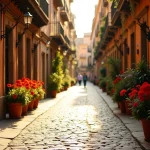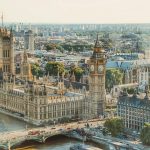Overview of British Theater in London
British theater has left an indelible mark on the global performing arts landscape, with London standing as its vibrant epicenter. For centuries, the city has been a melting pot of theatrical innovation, shaping not only performances within the United Kingdom but influencing theater cultures worldwide. From Elizabethan times, the genre has evolved, seeing remarkable transformations in both style and substance.
The evolution of theater styles in London reflects a journey from classic Elizabethan drama to avant-garde modern performances. London’s theaters have been hosts to all, from the bombastic plays of Shakespeare to the existential musings of Beckett. Every era has introduced new techniques and narratives, making the theater a mirror of the contemporary society.
Also read : Stress-free taxi Mons: your guide to hassle-free transfers
Figures like William Shakespeare, Harold Pinter, and George Bernard Shaw have been pillars of British theater history, each contributing significant works that resonate with audiences to this day. Their plays not only deliver profound societal critiques but also challenge the actors to scale new emotional and intellectual heights.
In essence, British theater in London serves as both a historical repository and a thriving contemporary art form that continues to captivate audiences across the globe.
This might interest you : Exploring Windsor’s Regal Legacy: A Historical Voyage into the British Monarchy’s Influence
Notable Guided Tours in London
Exploring the theatrical landscape of London isn’t complete without engaging in a guided theater tour. These tours offer an intimate glimpse into the city’s rich theatrical heritage, providing both history enthusiasts and theater lovers an opportunity to immerse themselves in the city’s dramatic legacy.
Essential Theater District Tours
The West End stands as the heart of London’s theater scene, renowned for its bustling atmosphere and iconic theaters. Guided tours of this district offer a comprehensive look at its highlights, such as the historical Drury Lane and the lavish London Palladium. Unique features of each tour include backstage access, historical anecdotes, and the chance to discover lesser-known venues that have shaped the district’s cultural significance.
Themed Tours Focused on Playwrights and Productions
For those interested in literary greats, themed tours dedicated to iconic playwrights like William Shakespeare provide a deep dive into their works and influence. Participants can explore venues where famous productions were first staged, gaining insights into the stories behind celebrated performances. Each thematic tour offers a distinct narrative, painting a vivid picture of London’s theater culture through the lens of its pioneering playwrights.
Key Theatrical Landmarks in London
London’s theater landmarks are a testament to its rich cultural history, drawing visitors from around the globe. The iconic Globe Theatre remains a symbol of the city’s theatrical roots, famously associated with the works of William Shakespeare. Known for its unique circular structure and open-air design, the Globe offers an immersive experience into the world of Elizabethan theater, providing audiences with an authentic taste of historic productions.
The Royal Opera House, located in Covent Garden, stands as a beacon for opera and ballet enthusiasts. Its stunning architecture combines historical elements with modern sophistication, creating a space that is both picturesque and acoustically superior. This landmark has hosted countless world-renowned performances, becoming a staple of London theater culture.
Another noteworthy venue is the National Theatre, which showcases a diverse array of contemporary and classic productions. With multiple stages, it supports both traditional plays and innovative new works, reflecting the evolution of theater styles in London. Each theater’s legacy is rich with anecdotes of groundbreaking performances, pivotal in shaping the global performing arts scene. These landmarks are not just venues but living monuments to Britain’s distinguished theater history, offering endless exploration opportunities for enthusiasts.
Insights into British Playwrights
British playwrights have long been pivotal in enriching the global theater scene. Figures such as William Shakespeare, Harold Pinter, and Samuel Beckett are monumental, each renowned for their unique contributions. Shakespeare’s works, for instance, are timeless, offering profound exploration of themes like power and identity, while Pinter introduced the world to “Pinteresque” dialogues that blend ordinary settings with underlying tensions. Beckett’s emphasis on existential themes in plays such as “Waiting for Godot” challenged traditional narratives and left a lasting impact on the genre.
In the realm of modern productions, these classic playwrights continue to cast a long shadow. Many contemporary theater pieces draw inspiration from their methodologies, mirroring the exploration of existential and social ideologies. Adaptations such as “Hamlet” reimagined in modern political contexts not only keep the original work’s essence but also make it relatable to today’s audiences.
Today, emerging playwrights in London explore topics like diversity and technology while building on the foundations laid by these legendary figures. Their works highlight how British theater culture remains a vibrant and ever-evolving entity. This intergenerational dialogue within the theater reflects Britain’s ability to constantly innovate while respecting its rich historical heritage.
Practical Tips for Visitors
When planning your visit to London’s vibrant theater scene, securing the best theater ticket deals is essential. To achieve this, start by utilizing online booking platforms that often provide discounts on advanced purchases. Engaging directly with theaters may also uncover exclusive offers or last-minute deals. Timing is crucial; booking tickets during off-peak seasons such as January and February may yield better availability and prices.
Visitor tips suggest combining theater experiences with London’s local attractions for a well-rounded visit. Incorporating a visit to landmarks like the British Museum or a stroll through Covent Garden can enhance your theater-filled itinerary.
Consider the best times to visit London’s theaters. Evening performances tend to offer a distinctive ambiance, attracting those keen on an authentic theater experience. However, matinee shows provide a more relaxed option and are often less crowded.
For first-time tourists, exploring theater districts such as the West End as part of a guided tour can be advantageous. These tours offer rich insights into London theater culture and simplify navigating the bustling theater scene. Adeptly combining your theater expedition with local highlights ensures a memorable and culturally enriched experience.
User Reviews and Experiences
Visitors often find theater tour reviews invaluable when planning their trips. Positive experiences frequently mention the engaging narratives shared during these tours. Many guests appreciate the knowledgeable guides who provide fascinating stories and insights into London’s theatrical treasures. Some reviewers highlight how these experiences offer a deeper connection to the city’s rich history and vibrant theater culture. Guests particularly enjoy tours that include backstage access, allowing them a peek into the theatrical world seldom seen by the public.
Highlighted Positive Experiences
- Visitors often praise the immersive nature of guided tours, noting how they bring the British theater history to life.
- Many reviews commend the inclusion of both major staples and less-known venues, which provide a comprehensive view of London theater culture.
Enthusiastic feedback about the interactive elements during tours shows how these features captivate audiences of all ages. For those eager to explore London’s rich cultural heritage, these tours are repeatedly recommended as a must-do activity.
Constructive Feedback and Suggestions
While overwhelmingly positive, some reviews suggest improvements, such as increasing the duration of tours for a more comprehensive exploration or providing additional historical context for less-familiar attendees. Visitors advise providers to refine the audio equipment for clearer guide commentary, enhancing the overall experience.






